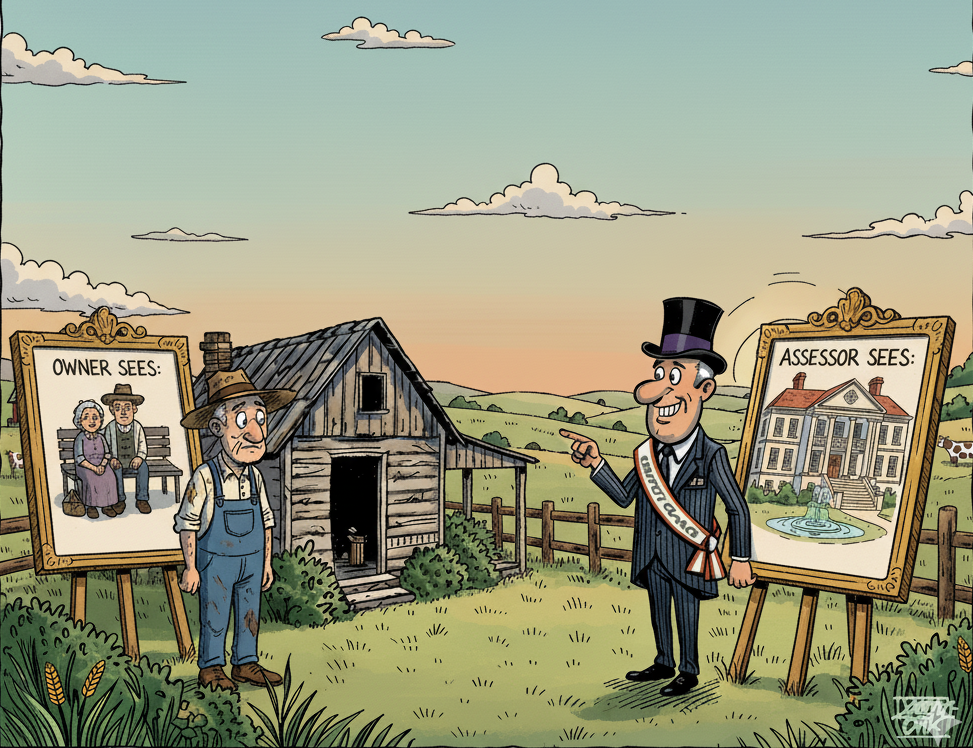
Property taxes have been a hot issue across Missouri. Many homeowners were shocked by sharp increases in their assessments last year, and questions are being raised about how those assessments are being done.
One phrase you may have heard is that assessors are now following “international standards” and something called “vertical equity.” But what does that really mean? And why would Missouri even look to other countries to decide how much tax you pay on your home?
Missouri’s Own Framework
Under our Missouri Constitution, property taxes must be “uniform and at true value in money.” That means every property owner should be treated fairly, and assessments should reflect the real market value. The system is supposed to be overseen by elected or accountable officials, with local boards of equalization where citizens can appeal.
In other words, our property tax system is meant to be local and accountable to Missourians.
What Are “International Standards”?
The International Association of Assessing Officers (IAAO) is a private membership group for assessors. They publish what they call “International Standards of Assessment Practice.” These are not laws — just professional guidelines that assessors use.
The IAAO draws heavily from places like Canada, Europe, and Australia. In those countries, property tax systems are often run by big centralized bureaucracies, not local officials. Their standards focus on technical measures, like whether assessments line up with statistical models, rather than on local constitutional principles.
| Missouri Framework | “International Standards” (IAAO) |
| Authority: Missouri Constitution (Article X) and state statutes define how property must be assessed (“uniform and at true value in money”). | Professional Guidelines: Created by the International Association of Assessing Officers (IAAO), a private membership organization. Not law, but promoted as “best practices” globally. |
| Control: Decisions are made at the state and county level by elected or appointed officials accountable to Missourians. | Control: Standards are shaped by assessors and tax officials worldwide — heavily influenced by Canada, Europe, and Australia. Local voters have no input. |
| Focus: Uniformity across Missouri taxpayers — emphasis on fairness between counties and compliance with state law. | Focus: “Equity testing” using statistical models (horizontal equity = fairness within property class; vertical equity = fairness across value levels). |
| Methods: Allows appraisal by inspection, market value studies, or mass appraisal if statutes permit. Local discretion remains. | Methods: Strong push for mass appraisal models and statistical performance testing, not individualized review. |
| Standards of Fairness: Rooted in constitutional language — “equal and uniform” taxation. Courts interpret what that means. | Standards of Fairness: Uses statistical formulas (e.g., Coefficient of Dispersion, Price-Related Differential) to prove “equity.” |
| Accountability: Assessors and boards of equalization answer to taxpayers, voters, and state officials. | Accountability: Assessors defend assessments by citing “international standards,” shifting debate from local policy to technical compliance. |
| Underlying Principle: Property tax is tolerated but limited by Hancock Amendment and other safeguards to restrain government growth. | Underlying Principle: Property tax is treated as a stable revenue source that must be optimized for “fair distribution” — regardless of whether the tax itself is questioned. |
What Is “Vertical Equity”?
“Vertical equity” is one of those technical ideas the IAAO promotes. In plain English, it means asking whether high-value properties and low-value properties are being assessed at the same percentage of their market value.
For example:
- If a $100,000 home is assessed at 100% of value, but a $1 million home is assessed at only 80% of value, the system fails the vertical equity test.
Assessors like this because it lets them prove, with math and charts, that the system is “fair.” But critics argue that it often ends up being used to justify raising assessments on ordinary homeowners rather than asking whether the system itself is broken.
Why Does This Matter?
Here’s the real question: Why should Missouri follow standards written in other countries when we already have a Constitution that spells out how taxes must be handled?
- Missouri’s framework is citizen-driven, rooted in local accountability and state law.
- The IAAO’s “international standards” are bureaucrat-driven, rooted in global professional norms with no direct accountability to voters.
By leaning on these “international” rules, assessors can say, “We’re just following best practices,” while avoiding the bigger debate: Are property taxes themselves fair and sustainable?
The Bottom Line
Property taxes affect every homeowner. They can mean the difference between keeping your home or being taxed out of it. That’s why it matters whether Missouri sticks with our own constitutional standards or defers to outside international guidelines that were never approved by the people.
At the end of the day, Missourians should decide what fairness means in our state — not an association of assessors in Canada or Europe.

